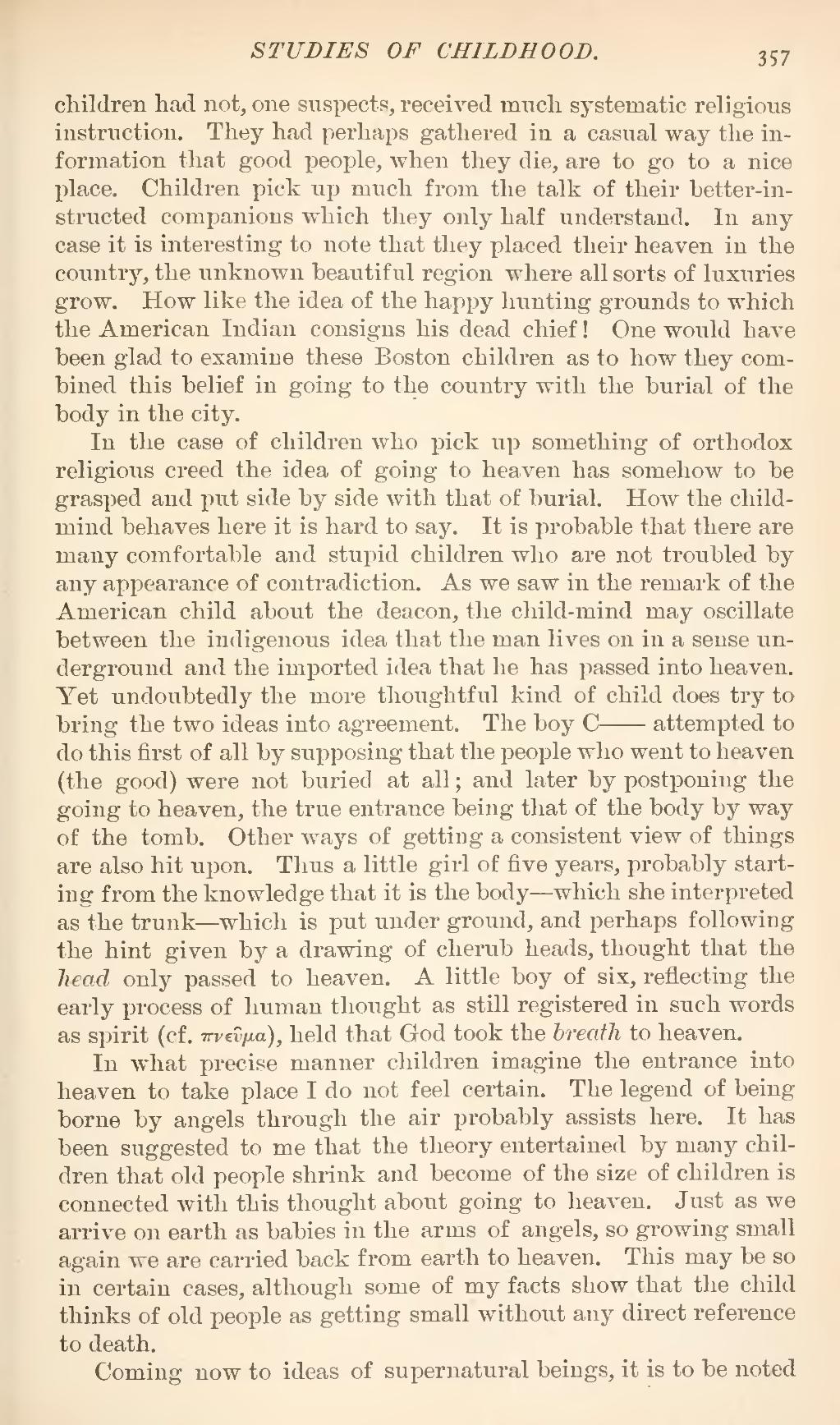children had not, one suspects, received much systematic religious instruction. They had perhaps gathered in a casual way the information that good people, when they die, are to go to a nice place. Children pick up much from the talk of their better-instructed companions which they only half understand. In any case it is interesting to note that they placed their heaven in the country, the unknown beautiful region where all sorts of luxuries grow. How like the idea of the happy hunting grounds to which the American Indian consigns his dead chief! One would have been glad to examine these Boston children as to how they combined this belief in going to the country with the burial of the body in the city.
In the case of children who pick up something of orthodox religious creed the idea of going to heaven has somehow to be grasped and put side by side with that of burial. How the child-mind behaves here it is hard to say. It is probable that there are many comfortable and stupid children who are not troubled by any appearance of contradiction. As we saw in the remark of the American child about the deacon, the child-mind may oscillate between the indigenous idea that the man lives on in a sense underground and the imported idea that he has passed into heaven. Yet undoubtedly the more thoughtful kind of child does try to bring the two ideas into agreement. The boy C attempted to do this first of all by supposing that the people who went to heaven (the good) were not buried at all; and later by postponing the going to heaven, the true entrance being that of the body by way of the tomb. Other ways of getting a consistent view of things are also hit upon. Thus a little girl of five years, probably starting from the knowledge that it is the body—which she interpreted as the trunk—which is put under ground, and perhaps following the hint given by a drawing of cherub heads, thought that the head only passed to heaven. A little boy of six, reflecting the early process of human thought as still registered in such words as spirit (cf. πνένμα), held that God took the breath to heaven.
In what precise manner children imagine the entrance into heaven to take place I do not feel certain. The legend of being borne by angels through the air probably assists here. It has been suggested to me that the theory entertained by many children that old people shrink and become of the size of children is connected with this thought about going to heaven. Just as we arrive on earth as babies in the arms of angels, so growing small again we are carried back from earth to heaven. This may be so in certain cases, although some of my facts show that the child thinks of old people as getting small without any direct reference to death.
Coming now to ideas of supernatural beings, it is to be noted

